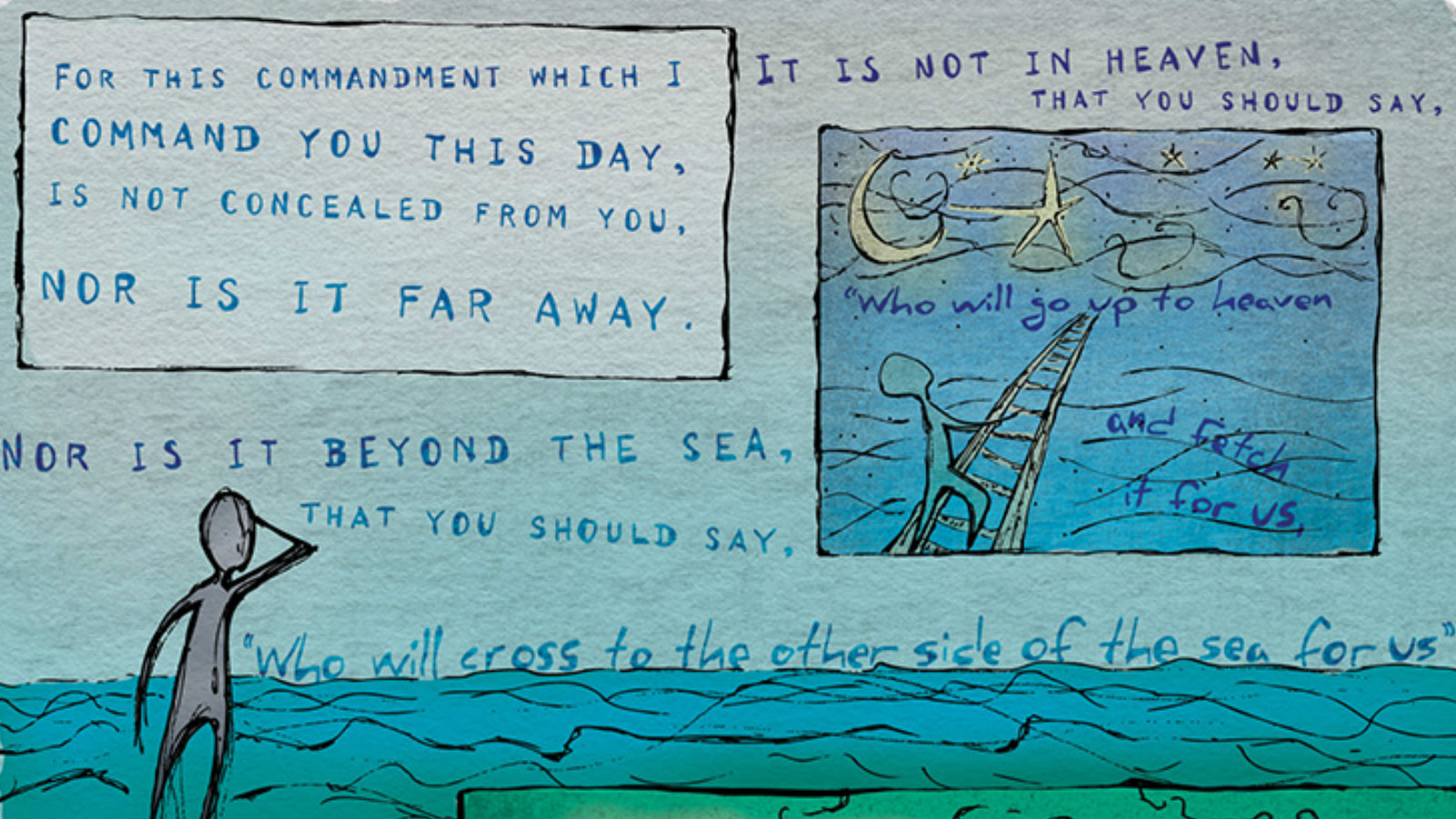Commentary on Parashat Nitzavim, Deuteronomy 29:9 - 30:20
Parashat Nitzavim begins on the final day of Moses’ life. The text emphasizes the significance of this with its repetition of the word hayom — today — five times in the first six verses of the portion. According to the biblical commentator Rashi, Moses knew which day he would die. He knows this is his last chance to address the nation.
There is a principle in Jewish law that before death, a person is assumed to be speaking sincerely. Divrei sh’chiv mera — a person’s words on their deathbed are as legally binding as a written contract, the Talmud says. Secular law has a similar concept, called the dying declaration. We implicitly understand that when someone is close to death, they are speaking with deep sincerity. Regardless of whether those moments are difficult or serene, they carry great weight. We listen carefully; a person’s last words carry deep significance.
On the final day of his life, Moses speaks words that are not new, but serve to refocus the nation on their relationship with God. The medieval Spanish scholar Ramban describes the events of Nitzavim as a repetition of the covenant of Sinai. On a practical level, this makes sense. Moses is speaking to a new generation who were either not present at Mount Sinai, or were there as children. It is an opportunity for him to reiterate the national commitment for a new generation who are about to enter the land of Israel.
But repeating the covenant and the rituals of Sinai also takes on extra significance because this was Moses’ last day on earth. Even if the nation has heard these lessons repeatedly over the years, even though Moses has taught again and again about God’s promise to our patriarchs and about the importance of following God’s ways, the nation will listen on this day like never before. Hayom – on his final momentous day – Moses knew this was his chance to make a greater impact than he could have made on any other day of his life.
With your help, My Jewish Learning can provide endless opportunities for learning, connection and discovery.
We read Nitzavim during the season of teshuvah, or repentance, in the weeks before Rosh Hashanah. In Pirkei Avot, the rabbis teach: Repent one day before your death. But of course, we don’t know when our final day will be. Moses was unique in having this knowledge, and was able to use his final hours wisely, to make his dying declaration really count.
Obviously, we cannot possibly adhere to this advice literally. So perhaps the imperative here is to feel the urgency of our words and actions every single day, to live each day as if it were our last. What if we spoke each sentence as if it were our dying declaration, as if we knew people would remember those words for a long time?
The process of teshuvah is one of realigning ourselves each day with the honesty and integrity of someone who is on their deathbed. This does not need to be morbid or depressing. It is a reminder to live every day to its fullest, to speak always with sincerity, and to focus on what is truly important. When worrying about money or business, when arguing with a spouse, when getting frustrated with children or friends, we might choose to live that day as if it were our last. In a moment of frustration, we might ask ourselves, “At the end of my life, is this really going to matter?”
In this way, we might reach the power of hayom every single day.



